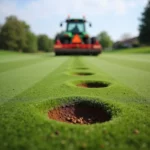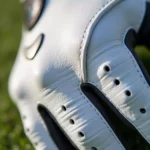Golf isn’t just about swing mechanics, course strategy, or perfecting your putt; it’s also about the gear that helps you perform your best. Among the essential accessories for golfers is the golf glove. It provides grip, comfort, and protection. But have you ever wondered: how long do golf gloves last?
In this comprehensive guide, we’ll delve into the lifespan of golf gloves, factors that influence their longevity, signs of wear and tear, and best practices to extend their life. You’ll walk away with a clearer understanding of how to care for your gear and keep your performance up to par.
Factors Influencing the Lifespan of Golf Gloves
Several factors determine how long your golf gloves will last. Let’s break them down:
1. Material
- Cabretta Leather: Known for its soft feel and excellent grip, Cabretta leather gloves typically last longer but may wear out faster in humid conditions.
- Synthetic Materials: Generally more durable in various weather conditions, but often don’t offer the same feel as leather.
2. Frequency of Use
- Casual Players: If you’re hitting the links just once a week, your gloves will last significantly longer compared to daily or frequent players.
- Practice Rounds: Regularly practicing can accumulate wear quickly.
3. Weather Conditions
- Humidity and Rain: Wet conditions can lead to quicker deterioration. Leather can get stiff, while synthetics can become slippery.
- Heat: High temperatures can cause gloves to dry out and crack, ultimately shortening their lifespan.
4. Proper Care
- Storage: Leaving your glove in a humid bag or under extreme temperatures can accelerate wear.
- Cleaning and Maintenance: Following proper cleaning protocols can significantly extend the life of your glove.
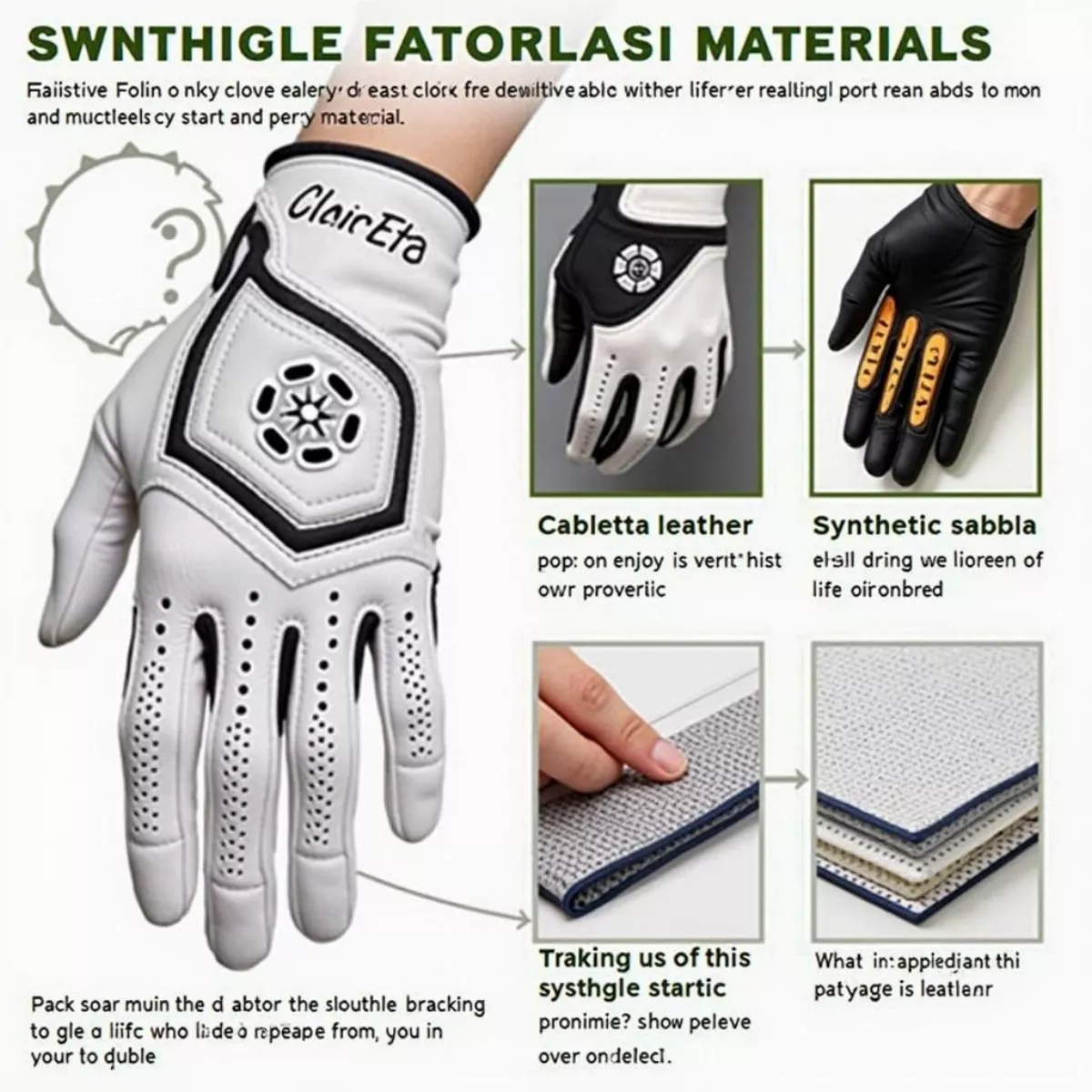 Golf Gloves Materials Comparison
Golf Gloves Materials Comparison
Average Lifespan of Golf Gloves
While the lifespan of a golf glove can vary widely depending on the factors above, here’s a general breakdown:
| Type of Glove | Average Lifespan |
|---|---|
| Cabretta Leather | 15 to 20 rounds |
| Synthetic | 10 to 15 rounds |
| Rain Gloves | 5 to 10 rounds |
| Winter Gloves | 10 to 20 rounds |
Key Point: If you play several rounds a week, expect to replace your gloves more often. For most recreational golfers, replacing gloves every month or two usually suffices.
Signs Your Golf Gloves Need Replacement
Keeping an eye out for these signs can help you gauge when it’s time to retire your glove:
- Cracks or Tears: Observe the surface for any cracks in the material.
- Decreased Grip: If your glove feels slippery and doesn’t offer the same grip, it’s time to consider a replacement.
- Uneven Wear: Check for thinner areas that might indicate uneven wear.
- Foul Odor: Over time, sweat and dirt can degrade materials, causing unpleasant smells.
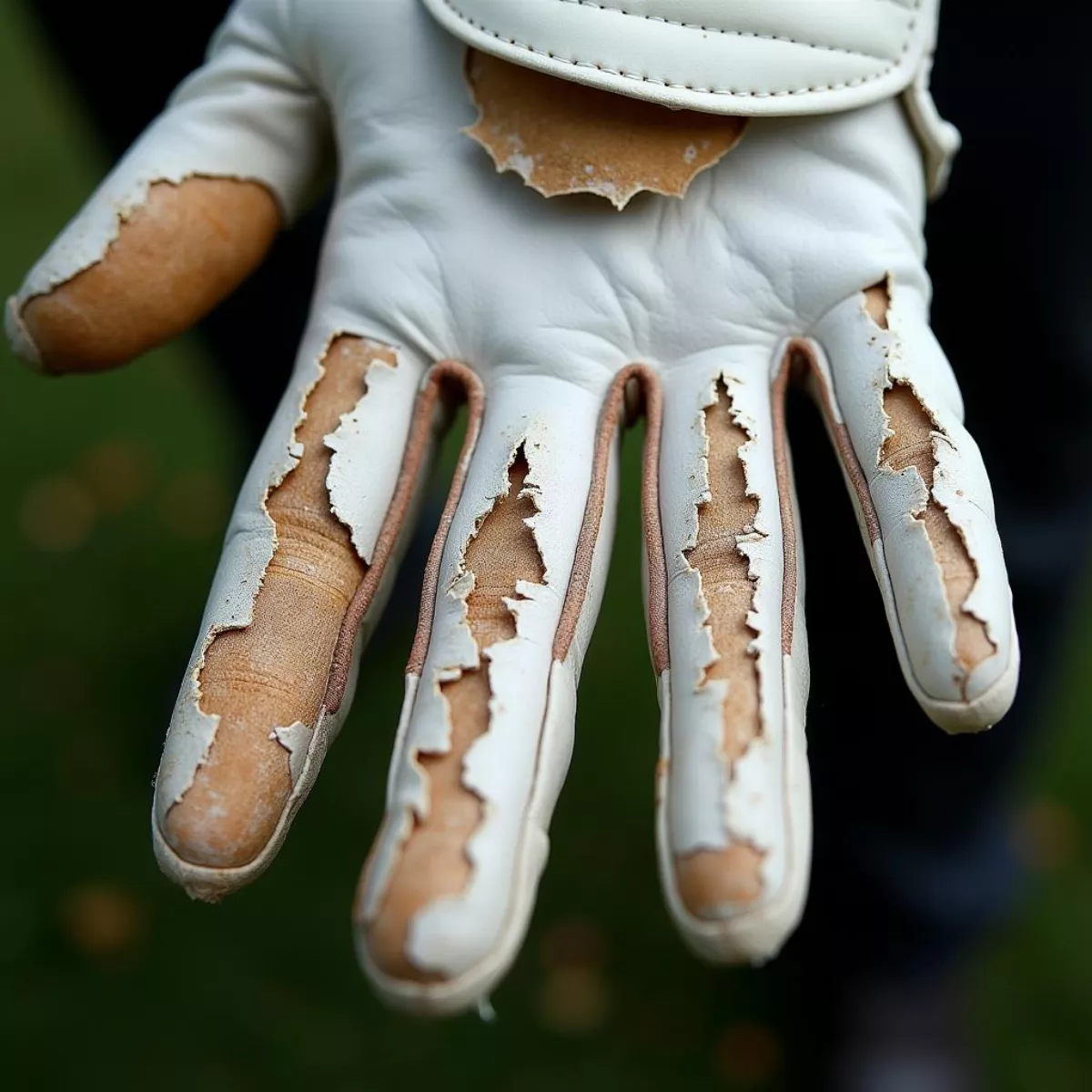 Signs of Wear on Golf Glove
Signs of Wear on Golf Glove
How to Extend the Life of Your Golf Gloves
Here are some tips for prolonging the lifespan of your gloves:
- Dry Properly: After your rounds, let your gloves air-dry in a cool place to prevent stiffness.
- Avoid Sun Exposure: Don’t leave your gloves in the sun for prolonged periods.
- Use a Glove Management System: If you’re a frequent player, have a rotation of gloves to allow them to rest.
- Store Correctly: Keep your gloves in a cool, dry place, preferably in a protective case.
Quote: “Good care leads to longer wear!”
Combining Golf Gloves with Game Performance
While discussing golf gloves, it’s essential not to overlook how they contribute to overall performance:
- Comfort: A proper-fitting glove allows for better grip and control which translates to improved swing mechanics.
- Confidence: The right glove can build confidence in your game, making you feel more prepared on the course.
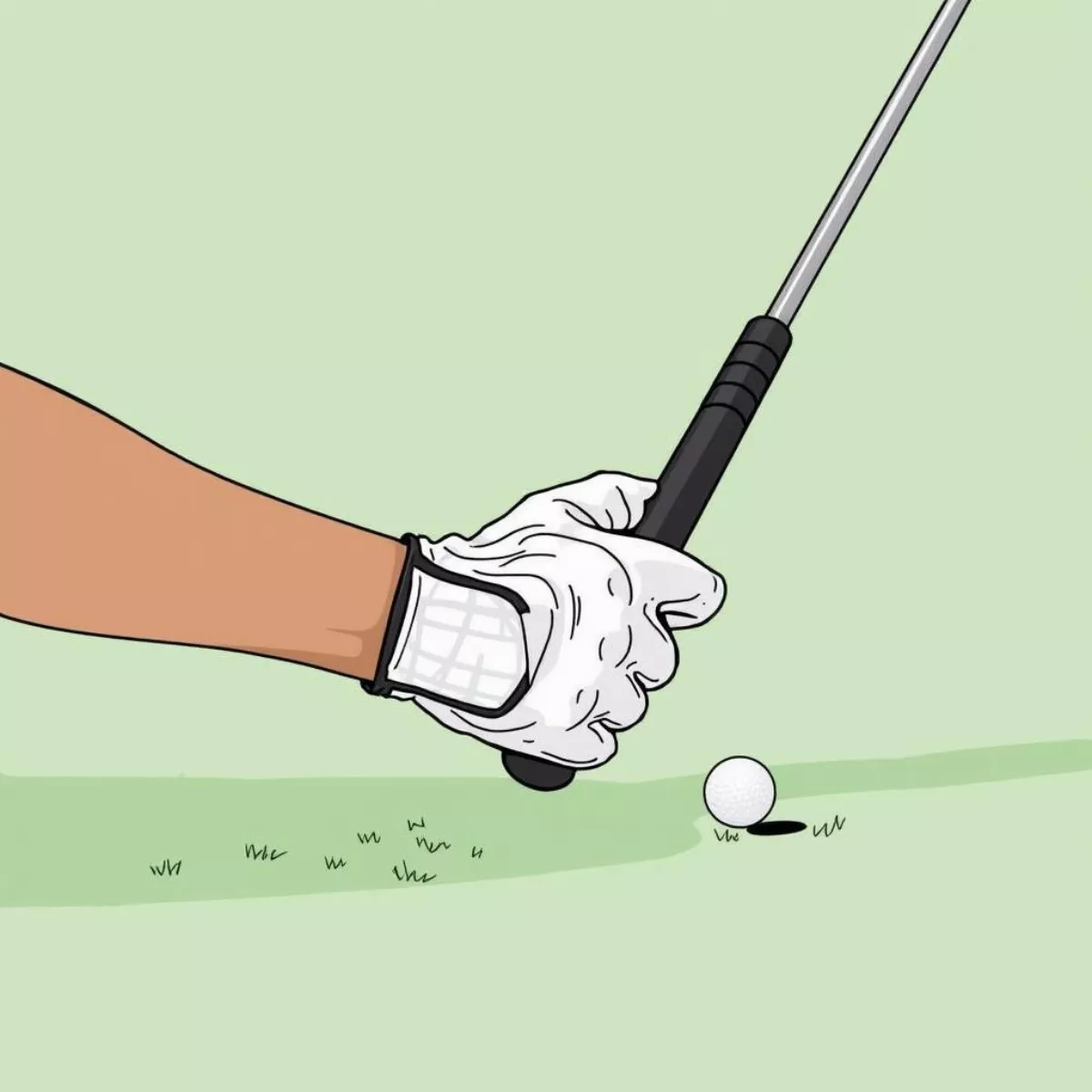 Golfer's Grip and Swing with Glove
Golfer's Grip and Swing with Glove
FAQ Section
1. How often should I replace my golf gloves?
Most amateur golfers should consider replacing their gloves every 10-20 rounds, depending on use and condition.
2. Can I wash my golf gloves?
Yes, but it depends on the material. Synthetic gloves can usually be machine-washed, while leather gloves should be cleaned gently by hand.
3. What is the best way to dry my golf gloves?
Air-drying at room temperature is best. Avoid putting them in direct sunlight or using heat.
4. Do I need a different glove for wet conditions?
Yes, rain gloves are designed specifically for wet weather and typically provide better grip in humid conditions.
5. Can I use my golf gloves for other sports?
While they may offer some grip for activities like tennis or cycling, golf gloves are specifically designed for the nuances of a golf swing.
6. How do I know my glove fits correctly?
A well-fitting glove should feel snug but not restrictive. The fingertips should touch the end of the glove, and there shouldn’t be excess material bunching up.
7. Can I use the same glove for different types of golf?
Yes, but you should consider gloves specialized for certain types, such as gloves specifically made for cold weather or rainy conditions.
8. What’s the best brand of golf gloves available?
Brands such as Titleist, FootJoy, and Callaway are popular among golfers, but the best choice depends on your personal comfort and performance needs.
9. Are expensive gloves worth the investment?
Often, higher-priced gloves offer better material and construction, which may extend their lifespan and improve performance.
Key Takeaways
- Lifespan: Most gloves last about 10-20 rounds, depending on various factors.
- Signs of Wear: Pay attention to cracks, decreased grip, and foul odors.
- Care Practices: Air-dry, store properly, and consider glove rotation.
- Usage Tips: Use specialized gloves for different weather conditions to optimize performance.
Understanding the lifespan of your golf gloves and maintaining them properly is essential to getting the most out of your gear. By following these tips, you’ll not only prolong the life of your gloves, but you’ll also enhance your game. Now grab that club, put on a fresh glove, and hit the course with confidence!
If you found this article helpful, feel free to check out more tips on golf gear management on our website! Happy golfing!
